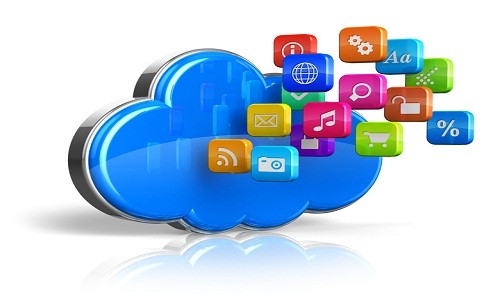The cloud has become an inevitable transition for companies, but many are scared about moving to this relatively new computing method because they believe that it’s expensive. The reality is that cloud computing is less expensive, especially when you consider the indirect savings.

If you want to save money and deliver amazing loading speeds to your customers, then cloud computing is a beneficial change for your company.
Hardware and Employee Costs
Running a server, if you just consider the cost of power, is relatively inexpensive. The problem is that it takes much more than this to operate a server. You have to buy the right software for your business, update your license, hire a team of tech employees to utilize the server’s full power, install antivirus programs and monitor the network for hackers and many other things. Not only that, but you have to directly buy the server and all hardware upgrades.
This translates to a large initial cost followed by moderate to large operating costs. If you transfer to the cloud, then you just have to pay the service provider’s fee. The fee might seem intimidating at first, but it’ll look more than fair when you consider all of the costs that go into operating a server. As a recent guide on cloud computing explains, with the cloud you “simply log in and away you go. No IT hassles, no IT headaches,” (page 10 of How To Avoid A Storm in Your Cloud Installation, a free downloadable cloud computing ebook)
Utilization and Power Discounts
Cloud providers can charge a relatively low fee because they are able to maximize power and utilization with their servers. If you use a server, then it won’t be fully utilized. Using all of the server’s power is a bad idea because a small jump in required resources can lead to a crash. A cloud provider uses many different servers at once, and everyone’s data is automatically able to use the power from other servers to balance the load.
This allows the provider to fully utilize the servers because other available servers handle extra requirements.
Power usage is also better from the perspective of a cloud provider. As stated above, your server or servers can’t be fully used. Idle or underused servers waste energy because they are active, but not doing much. Cloud servers are always working, which means that the power is being used wisely and efficiently.
Scalability
Scaling your business requires two things: time and money. It requires money because you have to buy new hardware to make the servers go faster or hold additional memory. It takes time because the hardware must be installed. This means that resources are being wasted as your hardware is scaled to your current needs.
The cloud is known for scalability. If you need more data, then the provider will instantly give it to you. Most providers allow your account to fluctuate up and down freely without restriction. This allows you to use as many resources as you need to run your company. The best part is that it all happens in a matter of seconds.
Low Capital Costs
This is best for small businesses. You might be hesitant about buying a server because there are high capital costs. It will cost relatively little when you consider how long it will serve you, but you don’t have the initial money right now for a large piece of hardware.
The capital cost for cloud services is close to nothing. You can get cloud storage for about $20 to $40 a month, which should handle your basic needs. This makes it much easier to use technology if you don’t have a huge budget.
Redundancy
Redundancy is usually a bad thing, but it’s good when it comes to technology. This means that you have spare hardware that can take up the slack if something breaks. For example, a redundant server can take over if the main server has problems.
Redundancy is needed to keep your business running if things happen, but this just increases your costs. If you use the cloud, then this responsibility falls on the service provider. You just pay for the amount of data that you use.
Conclusion
The cloud is suitable for both small and large businesses because it costs a small amount of money, is incredibly scalable and allows you to use technology without hiring an IT team.
Linda Le is a professional writer for various tech businesses and organizations.



